Faculty Ethos Statements
|
Faculty |
Ethos statement |
|
Maths |
We will foster an environment which ensures that students are not afraid of mathematics, and become increasingly confident and competent mathematicians who look forward to the challenges of a mathematical problem. We aspire for students to effectively apply mathematical skills and processes in both abstract and contextual situations. |
|
English |
The English curriculum at Saint Gabriel’s College aims to develop a critical understanding of the ways in which literary texts are a reflection of, and exploration of, the human condition. This includes themes such as justice, conflict, diversity, love and hope and spans time and culture. We provide opportunities for students to study how people communicate their ideas about the world, and how readers might respond to these perspectives. Importantly, students are also enabled to develop their own voice and empowered to communicate effectively. |
|
Science |
Science teaching in Saint Gabriel’s College aims to give all students a strong understanding of the world around them, whilst acquiring specific skills and knowledge to help them think curiously, to gain an understanding of scientific processes and also an understanding of the uses and implications of science, today and for the future. Our curriculum will encourage gender equality in STEM careers and reflect our diverse community through the inclusion of a variety of scientists and contexts. |
|
Humanities |
Here in Humanities we aim to give our students a curriculum which enables them to become confident, creative and independent learners who can explore the use of different knowledge and skills throughout their learning. We seek to broaden their real-life experiences both inside and outside of school through educational visits, visitors, experimentation, exploration and discovery. We have worked very hard to design a curriculum which reflects our student’s heritages, expands their horizons and makes them carefully consider key themes and debates. Within lessons, our students acquire a range of knowledge and skills in R.S., PSHCE, sociology, history and geography which they can then apply to other subjects and in a variety of situations. Furthermore, it is our aim that through historical, sociological, theological and geographical learning, students will become accountable citizens, understanding their role in protecting our world and environment and knowing how they can cause positive change and development as they develop. |
|
Languages |
Language learners at our school develop an enthusiasm and passion for language-learning, along with an appreciation of its application in real life. As well as developing their communication skills in a foreign language, students also improve their general literacy skills by better understanding the components of their own language through comparison. Furthermore, students develop their worldview through study of other cultures, enabling them to develop a greater understanding of the multicultural world around them and their place within it. At KS3 students develop an understanding of the key grammar and vocabulary in order to express themselves about a range of topics including identity and life at school, and are increasingly able to interact in real-life scenarios using the foreign language. As they move into KS4 they explore a wider range of themes including environmental and social problems in the world, and can use more complex language in the four skills; listening, speaking, reading and writing. By the end of their language studies, students leave school well-equipped to compete in an increasingly interconnected world, where their understanding of a foreign language prevents them from being left behind compared to other foreign language speakers, and furthermore gain a qualification that remains highly regarded by both other educational institutions and future employers. For native language speakers of French and Spanish we enable students to complete their GCSE early and train them to do this. In addition, we cater to a large number of ‘community language’ GCSEs, where we facilitate students completing a GCSE in languages that they may speak at home, including Portuguese, Polish, Italian, Chinese to name a few. As a department, we also look to provide extra-curricular opportunities to inspire students in their language studies and see the relevance of the language in a real-life context. We run trips which have included residentials to Lille Christmas Market and Paris, and day-trips to the Institut Français and Christine Dior Boutique. Alongside this, there is a French club and a well-stocked library with foreign language books. |
|
Creative Arts |
The Creative Arts curriculum at Saint Gabriel's College aims to foster the development of real-world, practical skills for life in a variety of disciplines. Our ethos promotes the nurturing of independent thinking, social collaboration and real-world problem solving, allowing every student to find and hone their own creative voice. Students will develop a working knowledge of a variety of subjects, and will learn to appreciate that these areas are in constant dialogue with a wider network of historical, cultural and societal influences. Our aim is that every student will feel empowered to think practically about how their work may impact society, as they grow into being proactive citizens in the wider community. |






